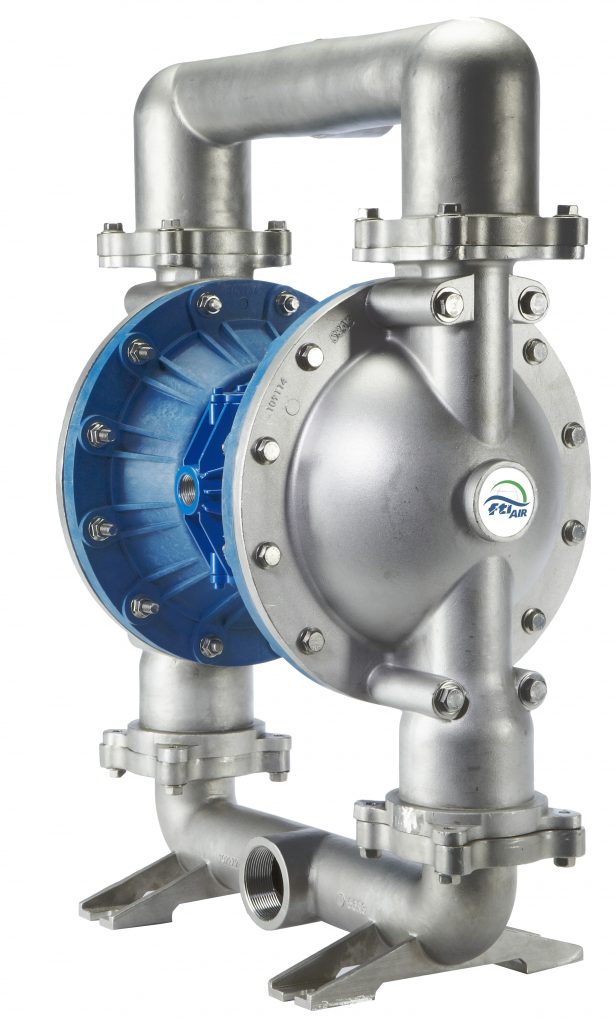Centrifugal Pumps in Greencastle, MO

Practical Applications for Drum Pumps in Greencastle, MO
- Water treatment: In water treatment facilities and other locations where clean water is required, drum pumps are used to move water and other fluids.
- Chemical processing: Drum pumps are used to move chemicals in a range of chemical processing applications, such as the manufacture of personal care products, food processing, and pharmaceuticals.
- Agriculture: Drum pumps are used to deliver water and other fluids to plants and crops.
- Manufacturing: Fluids like coolants, lubricants, and cleaning agents are transferred using drum pumps in manufacturing settings.
- Gasoline production: The oil and gas industry uses drum pumps to transport fluids like oil.
- Drum pumps are used in power generation facilities, such as nuclear power plants and coal-fired power plants, to move fluids.
- Drum pumps are used in the mining sector to move fluids like chemicals and water.
- Construction: To transport construction materials like concrete and grout, drum pumps can be used.

Greencastle Small Centrifugal Pumps
Centrifugal pumps' high flow rates and capacity to handle large volumes of fluid are two of their main advantages. Additionally, they have a fairly simple design that is simple to maintain. Applications for Centrifugal pumps include water treatment, irrigation, oil & gas production, and chemical processing. Centrifugal pumps come in a variety of designs, including axial, mixed, and radial flow pumps. Each type has its own distinct set of qualities and is created for particular applications.

Greencastle, MO Air-Operated Diaphragm Chemical Pumps and Their Applications
An Air Operated Diaphragm Chemical Pump is a type of positive displacement pump that uses a combination of compressed air and an elastic diaphragm to move chemical liquids. This type of pump is often used in industrial settings, such as chemical processing plants and water treatment facilities, due to its ability to handle high flow rates and corrosive materials. It’s also known for its superior design, as it can run dry without causing damage, making it more reliable than other types of pumps.
These pumps are highly versatile and have a wide range of applications. They are often used in the chemical, pharmaceutical, and food industries, as well as in industrial, agricultural, and water treatment operations. Air Operated Diaphragm Chemical Pumps can be used to transfer, meter, or dispense low to high-viscosity fluids and chemicals while providing precise, accurate flow rates with minimal maintenance.

MSDB SERIES - MAGNETIC DRIVE, SEALLESS, Greencastle CENTRIFUGAL PUMPS
- High specific gravity handling – over 1.8
- Sealless design improves reliability with no seal maintenance to perform or seal leaks
- High power neodymium magnetic drive system handles high specific gravity fluids
- Engineered for corrosive fluids with polypropylene/Ryton© or PVDF/Ryton© construction
- Horizontal or vertical (with IEC motor only) installation
- Compact close-coupled design
- Maximum working pressure up to 135 PSI (9.3 bar)
- Two stage versions contain two impellers, three stage versions contain three impellers
- Minimum flow rate is 1 gpm (.23m3/h)
- Heads up to 300 feet (91.5m)
Greencastle MO Drum Pumps
Drum pumps are used for a wide range of commercial, industrial, and residential applications which all involve moving liquids from large drums or containers to other locations where the liquid is required. This includes transferring liquids such as water, oil, gasoline, and various other types of chemicals and liquids. Additionally, drum pumps can be used to dispense fluids in specific amounts, making them practical for filling containers and for uses in manufacturing.
Drum Pumps are popular in industries such as mining, agriculture, and manufacturing. Chemical processing industries rely on drum pumps for things like food proccesing and pharmaceuticals. Even water treatment and construction industries use drum pumps as drums are a regular container in these industries.

Air-Operated Diaphragm Chemical Pumps are Durable, Reliable, and Easy to Maintain
These pumps can move a wide range of chemicals, both acidic and alkaline, reliably and with the least amount of maintenance. Because they are powered by air, they can be used in dangerous places because they can't explode and don't have any electrical parts. Air-Operated Diaphragm Chemical Pumps are long-lasting and reliable pieces of equipment that can be used for a long time in harsh conditions.
Not only do these pumps need little maintenance, but they also have a system of air valves that keeps the flow rate and pressure consistent. They work well to move a wide range of chemicals without the need for priming or lubrication. Air Operated Diaphragm Chemical Pumps are very easy to maintain, making them an ideal choice for many chemical applications.
